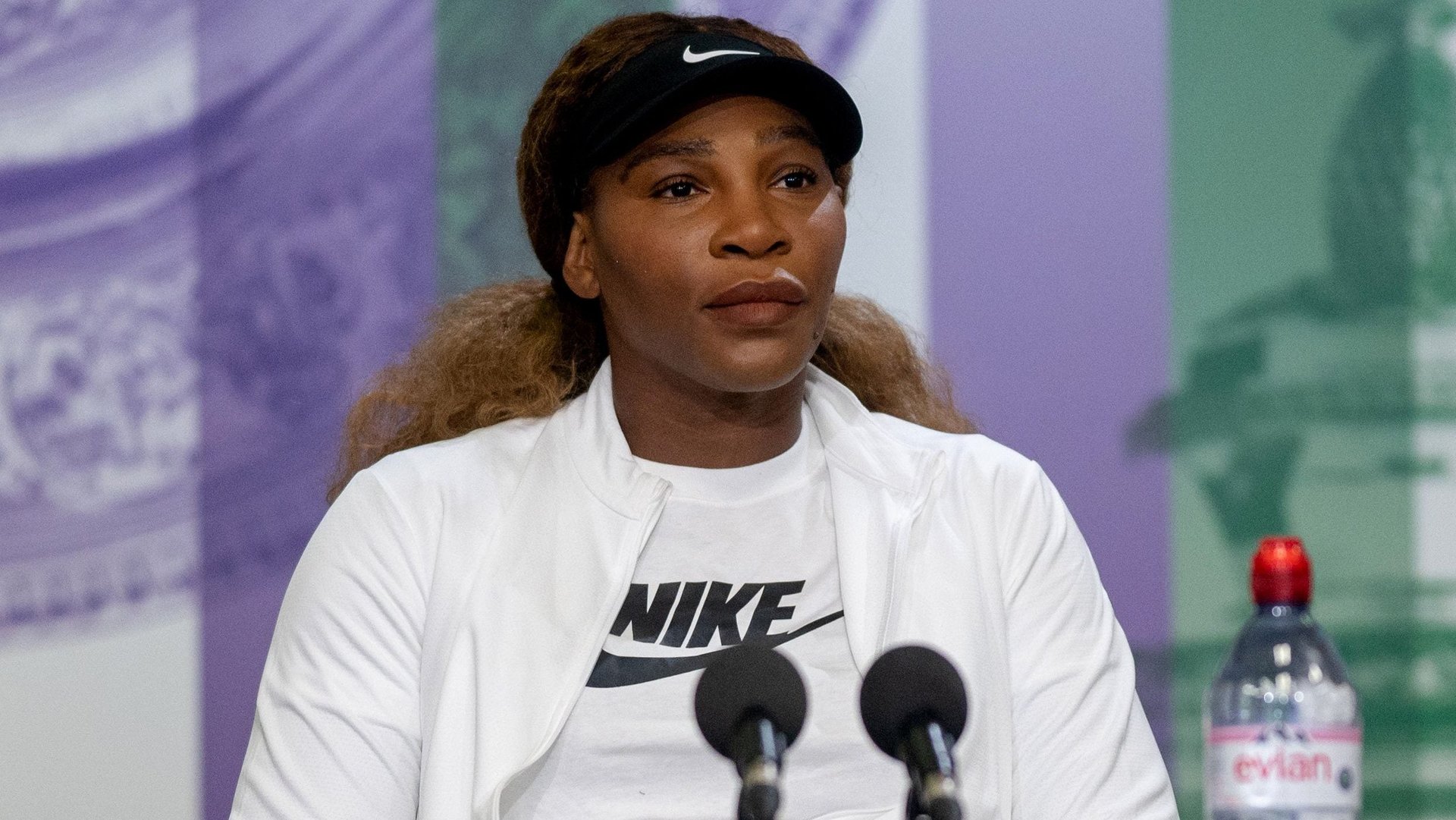Serena Williams isn’t explaining her decision to skip the Tokyo Olympics
Serena Williams joined the list of tennis stars who say they will not be playing at the Olympic Games in Tokyo this summer.


Serena Williams joined the list of tennis stars who say they will not be playing at the Olympic Games in Tokyo this summer.
At a pre-Wimbledon press conference on June 27, Williams told reporters, “Yeah, I’m actually not on the Olympic list, so…Not that I’m aware of. If so, then I shouldn’t be on it.”
She declined to elaborate, saying only, “There’s a lot of reasons that I made my Olympic decision. I don’t really want to…I don’t feel like going into them today. Maybe another day. Sorry.”
Williams, 39, had qualified for a spot on the Olympic team, of course. But Olympic tennis play is scheduled for July 24 through Aug. 1, which means the games begin just two weeks after the women’s final at Wimbledon and less than a month before the US Open Tennis begins on Aug. 30. As several news outlets have reported, Williams is aiming to win her 24th Grand Slam, and she may see the Olympics as a distraction that would also interfere with her ability to rest after Wimbledon and train before the US Open.
In May, Williams did mention the Grand Slams at an Italian press conference, suggesting they are part of her Olympic calculations. “I haven’t really thought much about Tokyo, because it was supposed to be last year and now it’s this year, and then there is this pandemic and there is so much to think about,” she said, adding, “Then there is the Grand Slams. It’s just a lot.”
The Tokyo Olympics’ no-family policy
Williams didn’t medal at the 2016 Olympics, but she has won four gold medals at Olympic events, three in doubles and one in singles. The last time she didn’t appear at the Olympics was in 2004.
Williams’ tennis ambitions may not be the only driver of her plans this year. In May, Williams, the mother of three-year-old Alexis Olympia, was asked about Olympic rules banning family from joining athletes this year. Normally, the Olympic Games do accommodate children and families, but the Covid-19 pandemic has forced the Olympic committee to rethink all kinds of standards. This year, athletes are required to travel solo, and those who wish to bring children will be considered on a case-by-case basis. Would that impact her plans?
“I haven’t spent 24 hours without her, so that kind of answers the question itself,” she responded. “We’re best friends.”
If childcare were the deciding factor for Williams, it ought to give Olympic organizers pause. The no-family rule may be disproportionately impacting women who would otherwise travel and compete. On the US team alone, at least 11 of the athletes are also mothers.
Covid-19 fears may still be in the mix
Some athletes who are turning their backs on the Olympics may also be concerned with their personal safety, especially amid a new uptick in infections in Tokyo. Members of the Ugandan Olympic team have already tested positive for the easily transmitted Delta variant upon arrival in Japan.
To be sure, the Olympic committee has instituted several rules to help contain the spread of the virus. For example, athletes will have to quarantine for at least three days and keep getting tested; they will not be able to high-five or hug each other; and they will be asked to wear masks at all times when not competing.
Vaccines will also be available for all, but they will not be required. Such guidelines will certainly change the experience of the game for more than 11,000 athletes from around the world and tens of thousands of foreign media who plan to attend, considering that developing nations have not reached the same vaccination levels as those of the richest nations. Avoiding a potential super-spreader event that will be complicated by layers of new protocols, including daily health check-ins, is not an unreasonable choice.
Double standards for Serena Williams
If history is a guide, the scrutiny may become more intense for Williams, even though two male tennis stars, Rafael Nadal and Dominic Thiem, have also said they’ll be skipping Tokyo for different reasons and seem to have been spared the same media attention.
On one hand, the extra focus is to be expected for the tennis legend, an icon whose fame overshadows perhaps all other players—and who, as a Black woman, however, has also always been subject to double standards in her sport.
Ideally, Williams will not be pressed to further explain her planned absence at the Olympics. Her final words at the Wimbledon press conference ought to be enough.
“In the past it’s [the Olympic event] been a wonderful place for me, but I really haven’t thought about it,” she said, “so I’m going to keep not thinking about it.”
Watch the full press conference below: